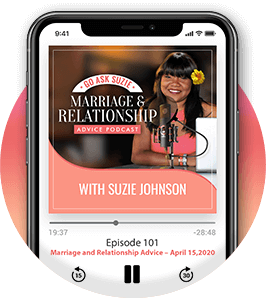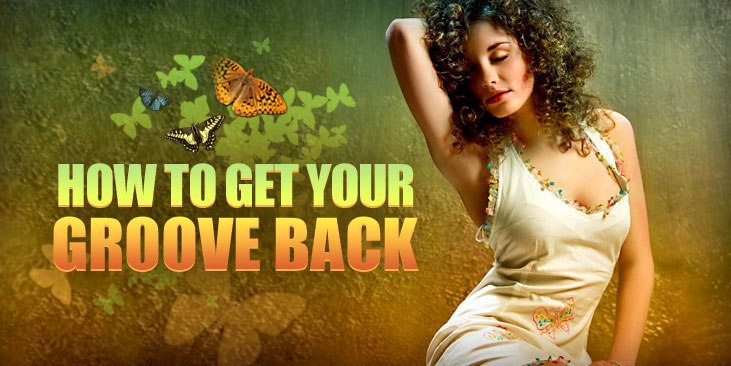![]() Since I discovered that my fiancé cheated with his ex-girlfriend, it’s like I lost all desire for sex. Even though I have forgiven him and even though I know he’ll never do anything like it again, I’m still not my old self. I’m not sure what’s going on with me. I feel like I’m stuck in a funk, as if the experience robbed me of something sexually that I just can’t get back. What should I do?
Since I discovered that my fiancé cheated with his ex-girlfriend, it’s like I lost all desire for sex. Even though I have forgiven him and even though I know he’ll never do anything like it again, I’m still not my old self. I’m not sure what’s going on with me. I feel like I’m stuck in a funk, as if the experience robbed me of something sexually that I just can’t get back. What should I do?
![]() In a recent study, scientists discovered something fascinating about mice.
In a recent study, scientists discovered something fascinating about mice.
They separated mice into two groups. In Group A, they suppressed the ability to play. In Group B, they allowed the mice to play all they wanted. Then the researchers introduced the scent of a cat into the environment of each group. Since a cat is a mouse’s natural predator, both groups of mice did exactly what scientists expected: they ran and hid.
Then, something interesting happened.
Once the scent of the cat was removed after a reasonable amount of time passed, the mice in Group B (the ones that had been allowed to play) became curious again. They came out of their hiding places and began to explore the environment. Once they determined that the threat was gone, the mice in Group B quickly returned to their natural state of playfulness. But the other mice, in Group A (where play was suppressed) NEVER CAME BACK OUT! And in fact, they stayed in hiding until they died.
Did you catch it?
And what does this have to do with getting back that loving feeling that the discovery of his indiscretion took from you?
Well, as it turns out, a lot. (I will tell you why in a minute.)
But for now, I want to point out that the experiment with mice was intended to address a significant question: how important is play?
Since mice have basically the same type of neurotransmitters as humans, scientists have found that by studying the brains of mice, they gain valuable insights into our own.
Here's the important part for you.
This groundbreaking study made a startling conclusion: the ability to play can mean the difference between life and death.
Since then, the study has been replicated over and over, and findings have been consistent. “Play” actually has a critical role for all animals, including human beings. It’s even been observed that when certain animals are play-deprived, their brains shrink! This is why many of today’s leading scientists argue that the opposite of play is not work, but depression, and that when human beings become play-deprived, their capacity to experience happiness actually shrinks.
Making the Connection
Does it surprise you to learn that playfulness has such a key role in our lives? If it does, then it’s really going to surprise you to learn that playfulness also plays a key role in “sparking desire” and reawakening passion, especially after a traumatic or painful incident.
Let me explain.
When something painful or threatening happens, we often react by going into hiding (just as the mice in the experiments did). That’s a natural response. The challenge is that sometimes, once the threat has passed and the painful event is over, it can feel scary for us to come out of hiding again.
This is where play can help.
My experiences with clients have convinced me how extremely helpful playfulness is in helping us come back out of hiding after we have had to endure negative experiences. For you, I believe it’s the master key to help you get your sexual groove back.
Here’s what I mean.
Human beings and dolphins have two things in common: (1) their desire to play remains strong throughout life (not just in childhood); and (2) they have the ability to enjoy sex for pleasure (not just for procreation, like most other mammals).

Are the two connected? You bet they are!
It’s a fact that when humans are play-deprived, they are more susceptible to depression. They are more likely to fall prey to dark, negative thoughts. They are also less likely to want to do things for the sake of pleasure (like having sex).
Am I saying that the fact that you’ve lost that loving feeling and that you feel stuck in a funk suggests you are play-deprived? Yes, that’s exactly what I’m saying.
And am I saying that the lack of playfulness is often a major factor in depression, loss of desire and sexual indifference? Yes, that’s exactly what I’m saying.
Think back to that study of mice playfulness and danger.
One of the things the scientists did was to introduce the scent of a cat into the environment. Because mice are deathly afraid of cats (and rightly so), that threat of danger sent both groups of mice into hiding. You will recall, however, that after a while, one group of mice came back out to investigate the environment. They took time to make sure they were safe, but once safety was reestablished, they began to play again.
Remember what the first group of mice did? That’s right. They never came out. They never investigated whether the danger was still present. Because of this refusal to take risk, they died in hiding.
What We Can Learn from Mice
Every woman goes through her fair share of painful experiences. We’ve all had the scent of danger introduced into our environments at some time or another. For many of us, that scent of danger was so intense, it sent us into hiding.
But hiding when it’s time to hide is not the issue. In fact, it’s a great survival tactic. The challenge comes when we fail to emerge from our hiding places and discover that the danger/threat is over. The problem is when we suppress our curiosity and refuse to investigate, try, test and reengage.
What Embracing Playfulness Can Do for You
“Play” is one of the safest ways to reawaken curiosity, take risks and reengage with our environment.
What exactly is play?
I define play as any activity that you fully engage in for pleasure’s sake. This can be a softball game, a board game, or just getting out and throwing a frisbee.
NOTE: Play is NOT competition. It’s full engagement for pleasure’s sake. Truly playful experiences have no value but pleasure.
How do you begin to embrace more playfulness?
You can do so in two steps
- Remove the myths about playfulness.
- Embrace and engage in more activities that spark playfulness.
Let’s begin by removing the myths about playfulness.

Removing the Myths About Playfulness
Make a note of this: consequence and punishment are NOT the same.
Taking responsibility means you’re willing to face the consequences of your actions in whatever way you can. It also means you’re willing to look inside and make changes in your thinking and behaving patterns. Taking responsibility also includes making peace with the past, along with actually forgiving yourself.
Some very good reasons for forgiving yourself:
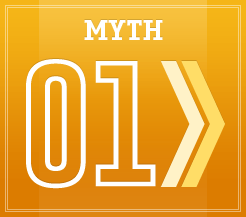
To be playful means to be irresponsible.
The myth is that if you embrace playfulness, then you have to deny, avoid or default on responsibility. Fact: Playfulness does none of these things. To embrace playfulness is to place a priority on relaxation, fun and full engagement with life, but not to the exclusion of other values. This means you make time for play, not that you spend all your time playing.
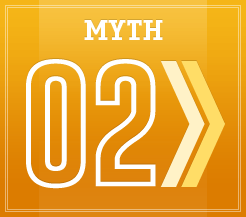
“Childish” and “playful” are the same thing.
The myth is that childish qualities like emotionality, immaturity and self-absorption are playful qualities. Fact: Being childish and being playful are not the same. Childish is immaturity characterized by the absence of rational thinking. This means childishness is an unattractive quality in adults. Playfulness, on the other hand, describes qualities of innocence, optimism and confidence, which are charismatic and endearing adult personality traits.
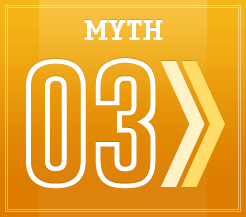
Playfulness and competitiveness are the same.
The myth is that to play and to compete are the same thing. Fact: Play is engaging in an experience for the sake of the experience itself. This means that play has no purpose other than itself. It’s free from agenda, outcomes and results. However, if you play to win, to prove yourself, to be the best, to gain recognition, to get a reward, to score or to make money, then you are not playing — you’re competing. And that’s a totally different kettle of fish.
Embracing and Engaging in Playful Activities
Here’s the thing: the more reluctant or resistant you feel to doing this step, the more you actually need to do this step. Because chances are, you’ve been in hiding for so long, you’re afraid to come out and play. Which is just another way of saying you’re afraid of letting your guard down, you’re afraid of being blindsided, and you’re afraid of relaxing again.
The question to ask yourself is this:
Can you really be safer hiding behind all those fears? What’s the bigger risk, coming out of hiding or keeping the playful side of you hidden?
My answer? The biggest risk you can take when it comes to relationships is to play it safe. While hiding can give the illusion that it prevents hurt, it actually does the exact opposite. Because those who refuse to reengage in play after trauma… end up traumatized for life.

And if that’s not what you want…
Here’s what you do.
Make a list of 10 playful things you can do to enjoy, embrace and reengage right away. A great place to look is your childhood, your passions or your hobbies. Then, I want you to spend the next 14 to 21 days making your way down that list… checking every line off.
For example:
If you used to play with a certain type of toy, go buy that toy and allow yourself to play with it again. If you like playing an instrument, go play it again. If you used to be a dancer, sign up for dance class again.
Notice something interesting?
Although the end goal is to reignite your passion, sexual interest and desire, the path we take is indirect. This is because sexual awareness is inherently linked to playfulness. So the instant you open yourself to one, you automatically open to the other as well.
Do you think you can do that? I know you can. Don’t hesitate… begin right away.
Final thoughts…
I believe that every woman is like the moon, in that she has two sides: light and dark. When something painful happens, we turn away from our natural lighthearted and playful side, and it causes us to lose way. But the good news is that we can turn back towards the light. To help you do that, I want you to make the following agreements with yourself:
When you find yourself moving towards the dark side, turn towards the light.
When you find yourself wanting to hide, say… I am willing to risk being seen.
When you meet inner resistance, say… I am willing to say ‘yes’ more than I say ‘no.’
When you feel boredom or apathy, say… I am willing to embrace playfulness as a way of life.
When you feel isolated and lonely, say… I am willing be more curious about life, love and intimacy.
Do this and you’ll get your groove back, because like the moon, it never left — you simply turned away from it. And if you would like to learn a lot more of my strategies on how to reignite your playful and passionate side, then you’ll want to enroll in Rebuilding Your Marriage Online Course for Couples.
Until we speak again…
Remember… Love Wins!






